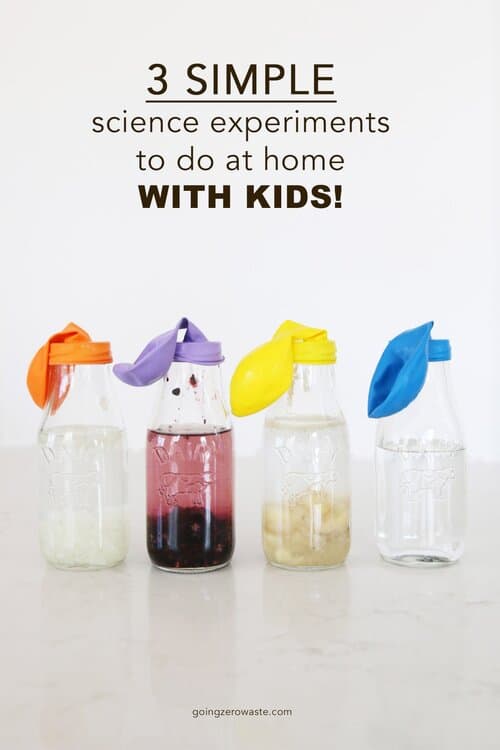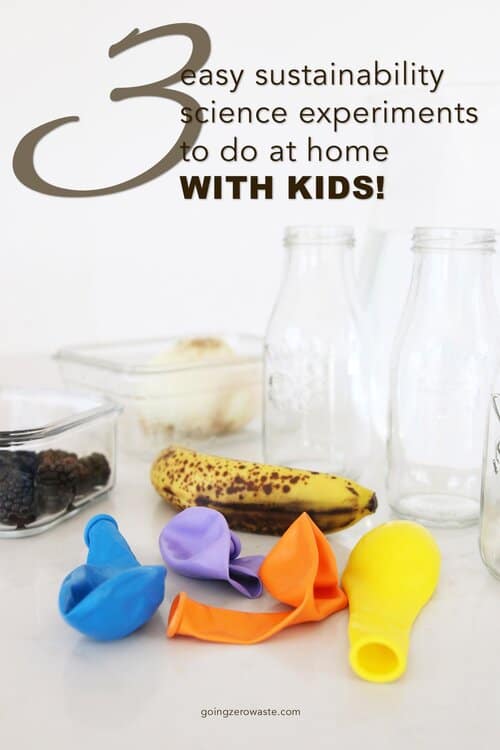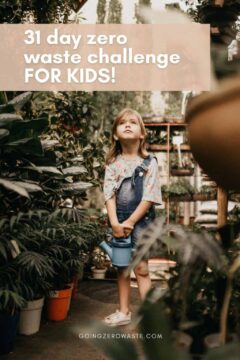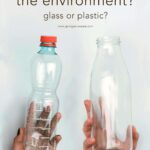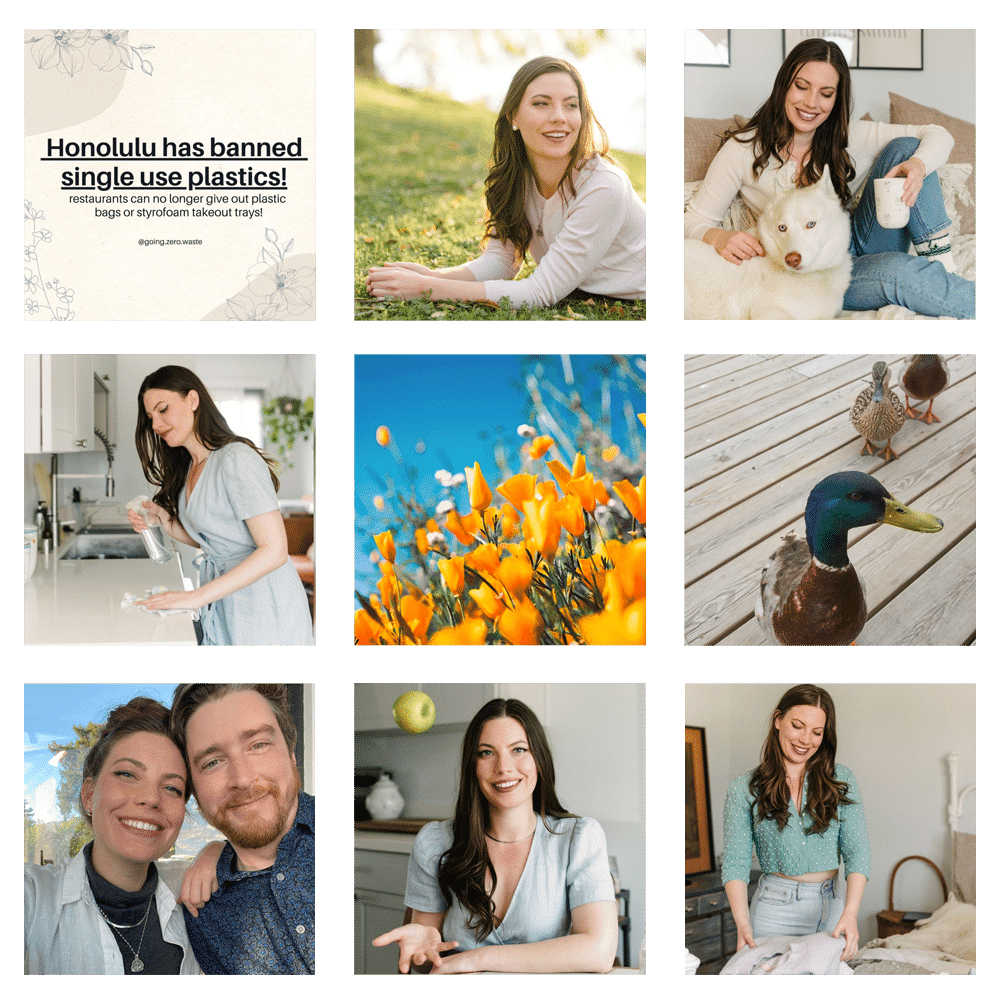3 Simple Sustainability Science Experiments To Do At Home With Kids
Eco-Friendly Kids and Parenting
April 17, 2020 | Guest Post
Last Updated on January 23, 2024
Times are weird right now. So much is different. While many of us are dealing with a whole new world of stress and uncertainty, it’s nice to find a silver lining sometimes.
With so much extra time at home with our kids, it has been a great time to teach our youngsters a few of the life lessons and educational tidbits that often got pushed to the wayside during “normal business hours”.
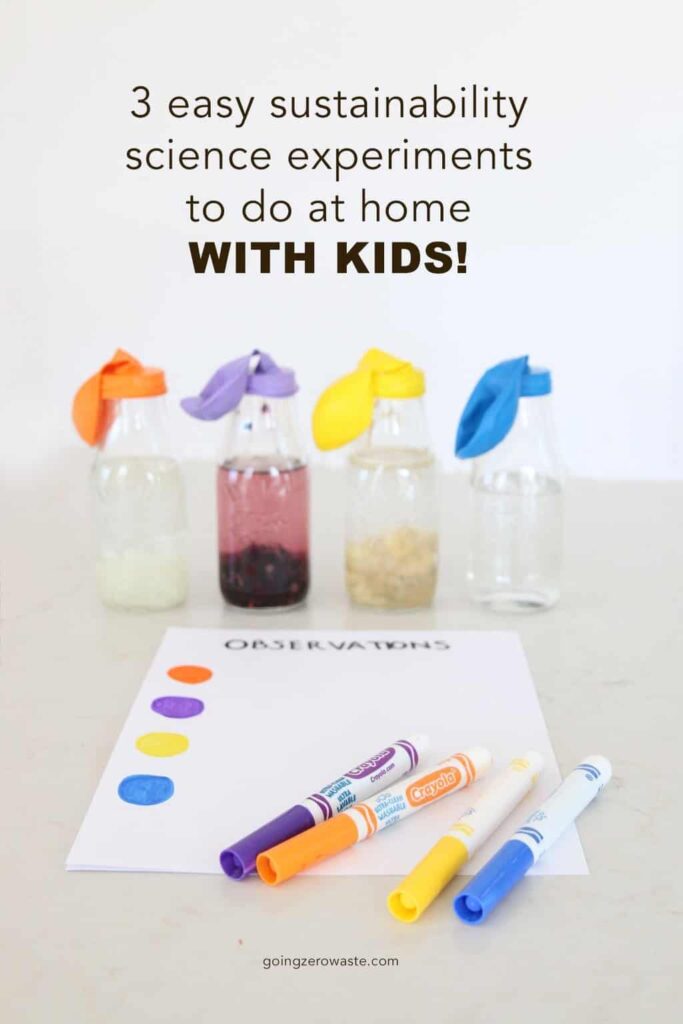
In our house, we’ve been cooking and baking together more than usual and even started teaching our boys to clean bathrooms this past weekend.
We’ve also had time for more creative projects and experiments. Today, I want to share three fun and educational projects about sustainability that you can do with your kids, including teenagers.
Yes, even teenagers.
RELATED: 7 Ways Your Teens and Tweens Can Go Green and Still Be Cool
I promise they are far more exciting than cleaning toilets and maybe even more fun than baking brownies.
As we share with our kids the importance of reducing waste and caring for the environment, these three experiments capture the science behind our sustainability initiatives.
All three of these sustainability science lessons came from Jess of Thoughtfully Sustainable.
Jess is a former high school chemistry teacher and mom of two. On her Instagram account, she shares weekly Sustainability Science Sunday experiments.
Many of her lessons include plans in English and Spanish, to help teachers and parents explore the science behind sustainability and eco-friendly living with their children and students.
Her lesson plans are free, linked to the U.S. National Science Standards and Common Core Standards for ELA and Math, include details about materials needed and any set up that is required (though most of her experiments require very little preparation).
Not only are they great for science skills, but they are perfect conversation starters for discussing environmental issues with our kids in a way that is accessible to them.
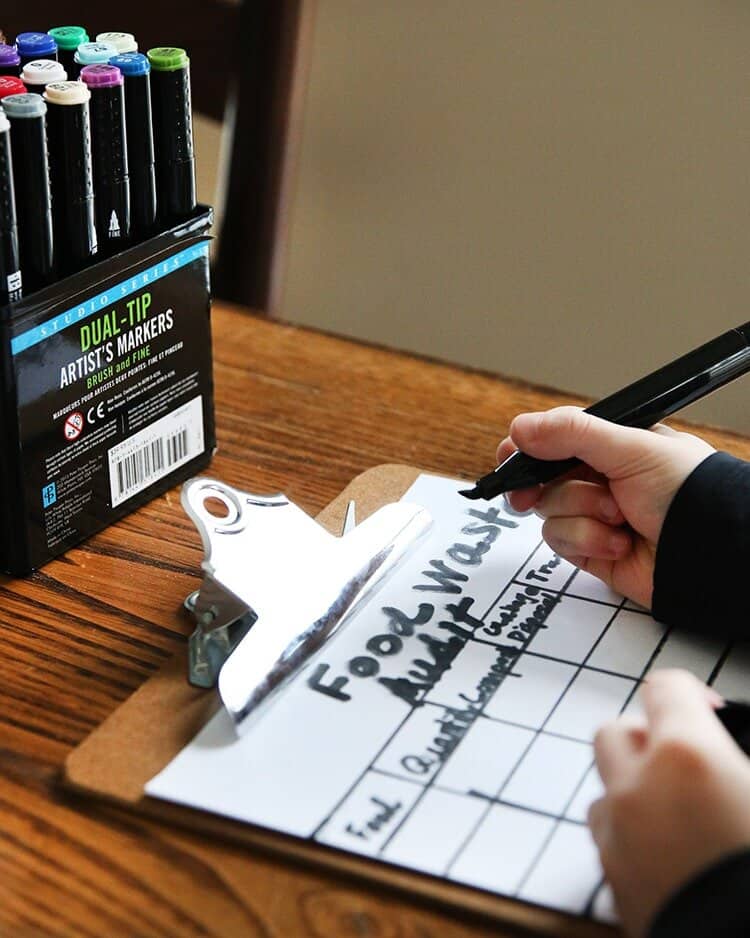
Table of Contents
1. food waste audit experiment:
A couple of weeks ago, we tried a food waste audit to track how much perfectly good food ended up in our trash cans or compost bins.
It’s pretty interesting how much we can learn about our unconscious behaviors when we start to track them.
Through the food waste audit, my boys paid a whole lot more attention to how much food they wasted.
Each person in our family was responsible for writing down their own food waste, which added an additional element of individual accountability.
The experiment also gave them a chance to practice science and math skills like measuring volume, tracking activities, creating and maintaining a data table and adding.
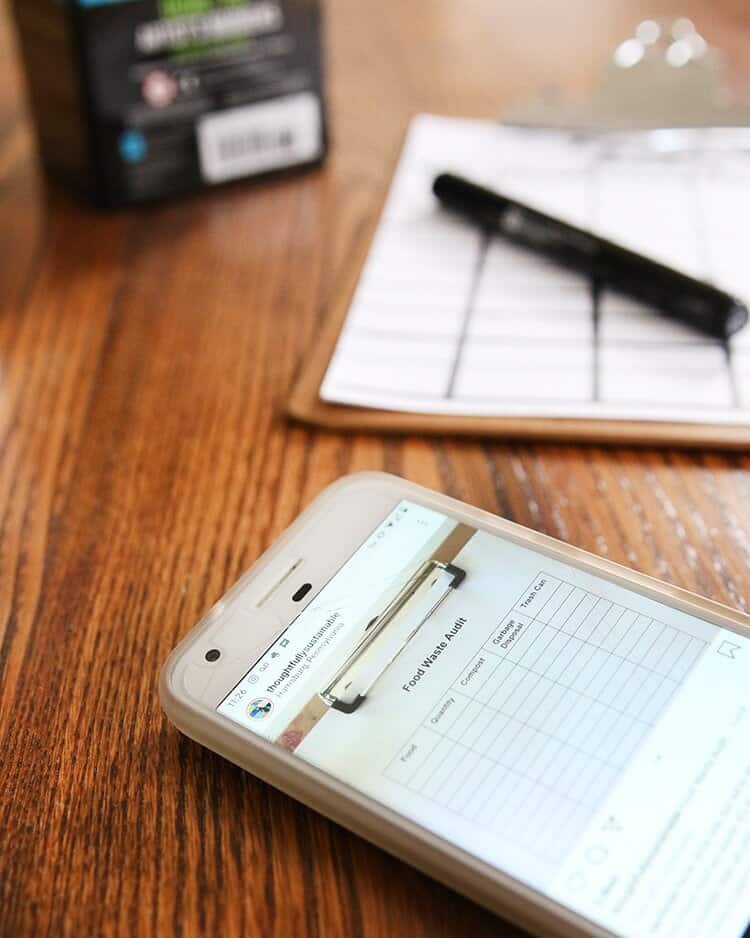
the science behind the experiment:
Globally, food loss and waste accounts for a tremendous amount of greenhouse gas emissions.
The World Resources Institute stated that “if food loss and waste were its own country, it would be the world’s third-largest emitter of greenhouse gases – surpassed only by The United States and China.” (source)
One main reason that wasting food is a serious issue has to do with how it decomposes.
When food is placed in the trash and sent to a landfill, it breaks down anaerobically, which means in the absence of oxygen.
RELATED: The Ultimate Guide to Backyard Composting
This decomposition process creates carbon dioxide and methane gas. When food is composted or breaks down naturally (like an apple that falls from a tree and rots on the ground) it breaks down aerobically, which means in the presence of oxygen.
The decomposition process creates carbon dioxide and water vapor.
The problem lies with the production of methane gas.
Scientists have determined that this gas is really good at trapping heat in our atmosphere – approximately twenty-five times better than carbon dioxide.
Due to methane’s heat-trapping power, along with its lifespan in our atmosphere, it is a key player in raising our global temperatures, which causes our climate to change.
There are many individual ways to avoid food waste.
However, in order to avoid wasting food you must first identify what is being wasted in your home.
That’s where this experiment comes into play. By recording everything you throw away for a week, you’ll have a better sense of where your food waste comes from, and then, be able to address how to decrease this misuse of nourishment.
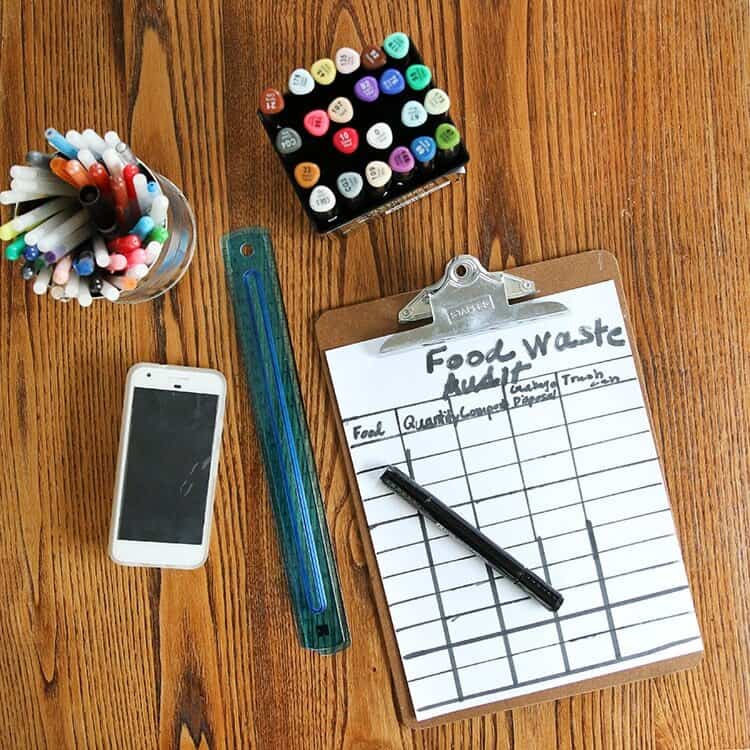
2. food scrap growth experiment:
If you follow Kathryn regularly, you know she’s a fan of growing food from scraps.
It’s such a great way to remind ourselves that what we might initially consider trash isn’t necessarily waste. The “remnants” of our food can be used for so many things like growing food scraps, composting, feeding chickens, and more.
RELATED: How to Grow a Windowsill Garden
In this experiment, Jess shows us how to pot certain types of food scraps and watch them grow. In her lesson plan, she incorporates skills like making observations, measuring, creating a graph and analyzing data.
Your kids could even try creating a hypothesis before you start to experiment and make educated guesses along the way about what will happen next.
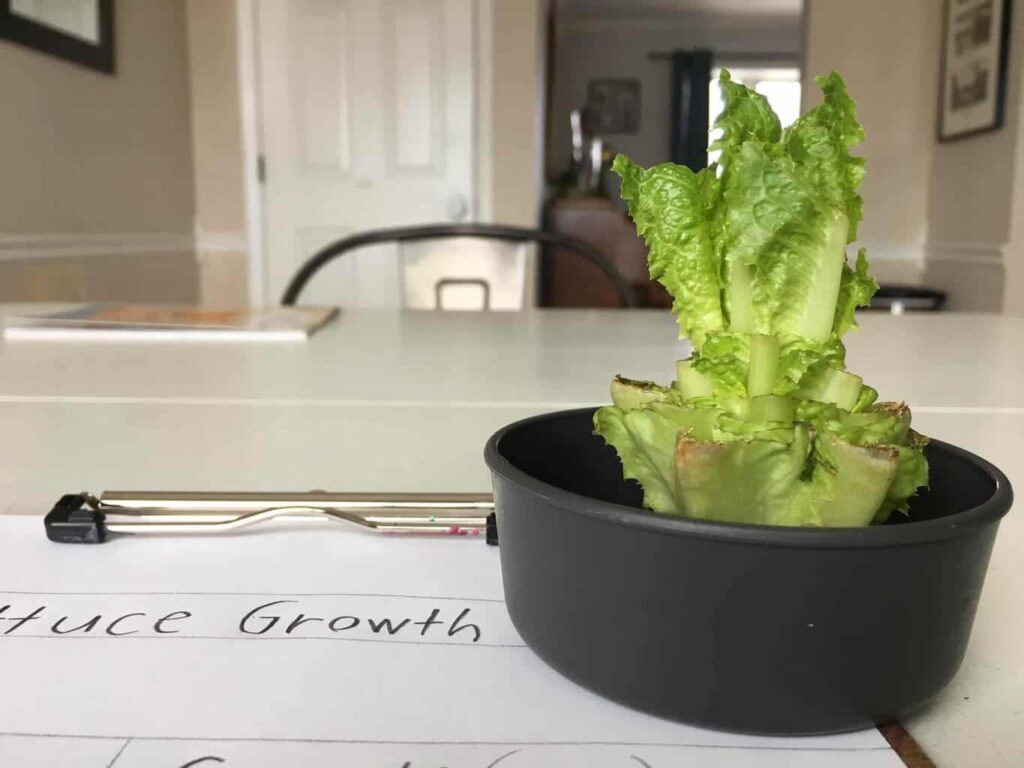
the science behind the experiment:
As stated previously, when leftover food gets thrown in the trash and sent to a landfill, it creates a gas called methane.
This gas is really good at trapping heat in our atmosphere. As more heat gets trapped, the climate of Earth changes, affecting the plants and animals, including humans, that live there.
There are lots of ways we can avoid food waste.
Planning your meals ahead of time with your family, donating or sharing food you aren’t going to eat, eating leftovers, freezing food scraps to make soups, regrowing your food scraps and composting are all ways to save food from being wasted.
In this lesson, you will learn how to regrow a vegetable from a scrap, monitor its vertical growth for 2 weeks and discuss the ecological importance of reducing food waste.
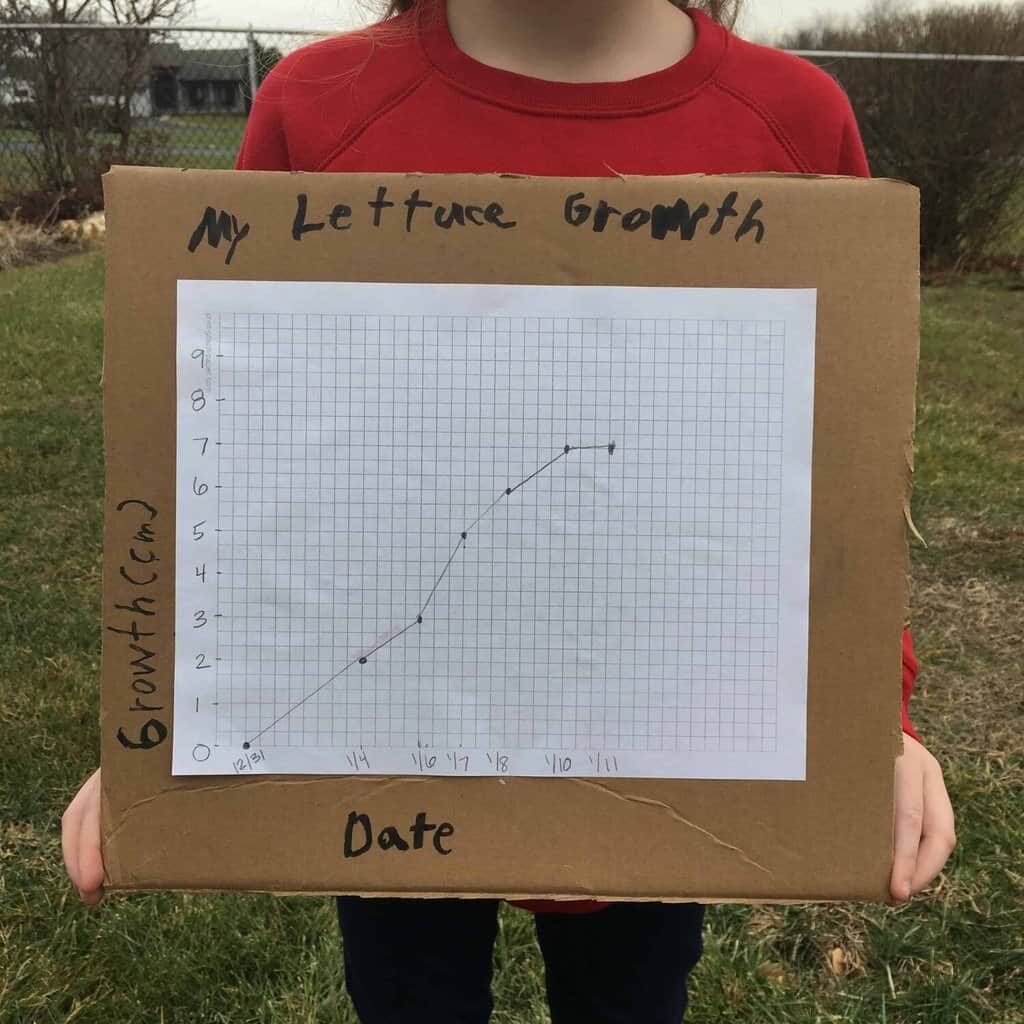
3. the landfill experiment:
Food decomposing properly with oxygen in a compost bin is a much different process than food decomposing in a landfill without oxygen.
Jess uses this experiment to show us how different foods produce different amounts of greenhouse gases when sent to a landfill.
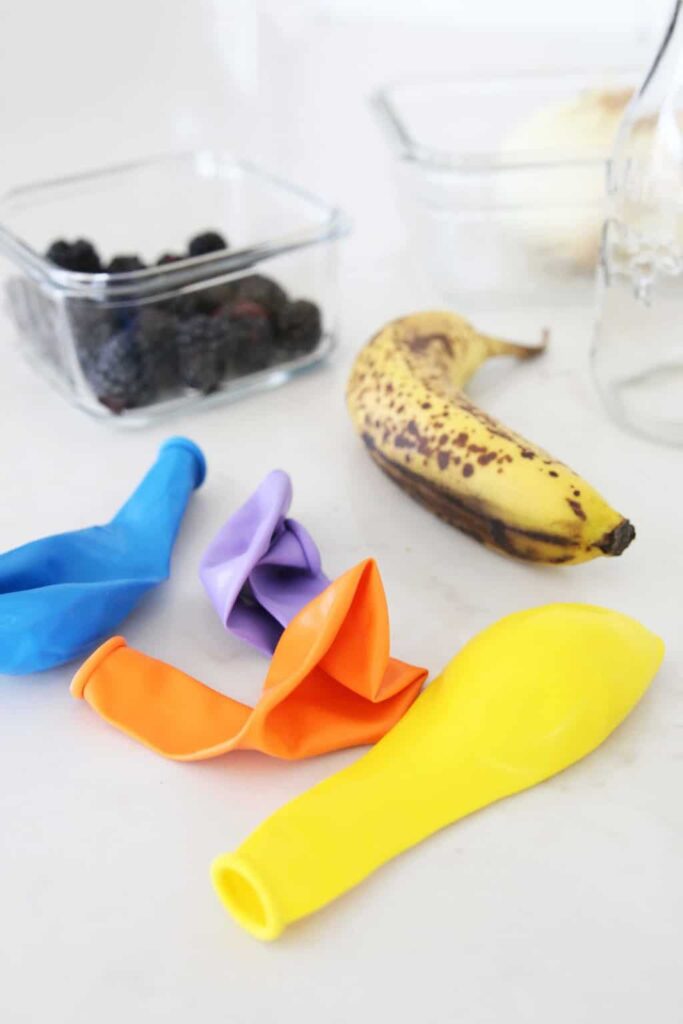
the science behind the experiment:
We’ve discussed what happens when food breaks down in a landfill.
This experiment allows you to actually see the process!
By choosing different types of foods, (as some foods are prone to produce more gases during decomposition than others) you will be able to watch the chemical breakdown of each food source and the relative amount of gas it produces.
By filling each test bottle completely with water, you create anaerobic (oxygen-lacking) environments that simulate the rudimentary conditions found at a landfill. You’ll be surprised by how quickly some of the balloons inflate!
This experiment can lead you and your learners to investigate the type of landfill that your waste travels to.
Is it a methane-recapture landfill, in which the methane that is produced is trapped and used to produce electricity, thus mitigating some of the negative effects of the landfill?
Or does your waste get sent to a traditional landfill that does not capture the gases that are produced?
Or maybe your waste doesn’t get sent to a landfill at all, but rather an incinerator? Researching what happens in your community can be a gateway to shaping young learners into environmental stewards.
All three of these experiments are really interesting for kids and adults, and they can be set up in just a few minutes with materials you probably already have at home.
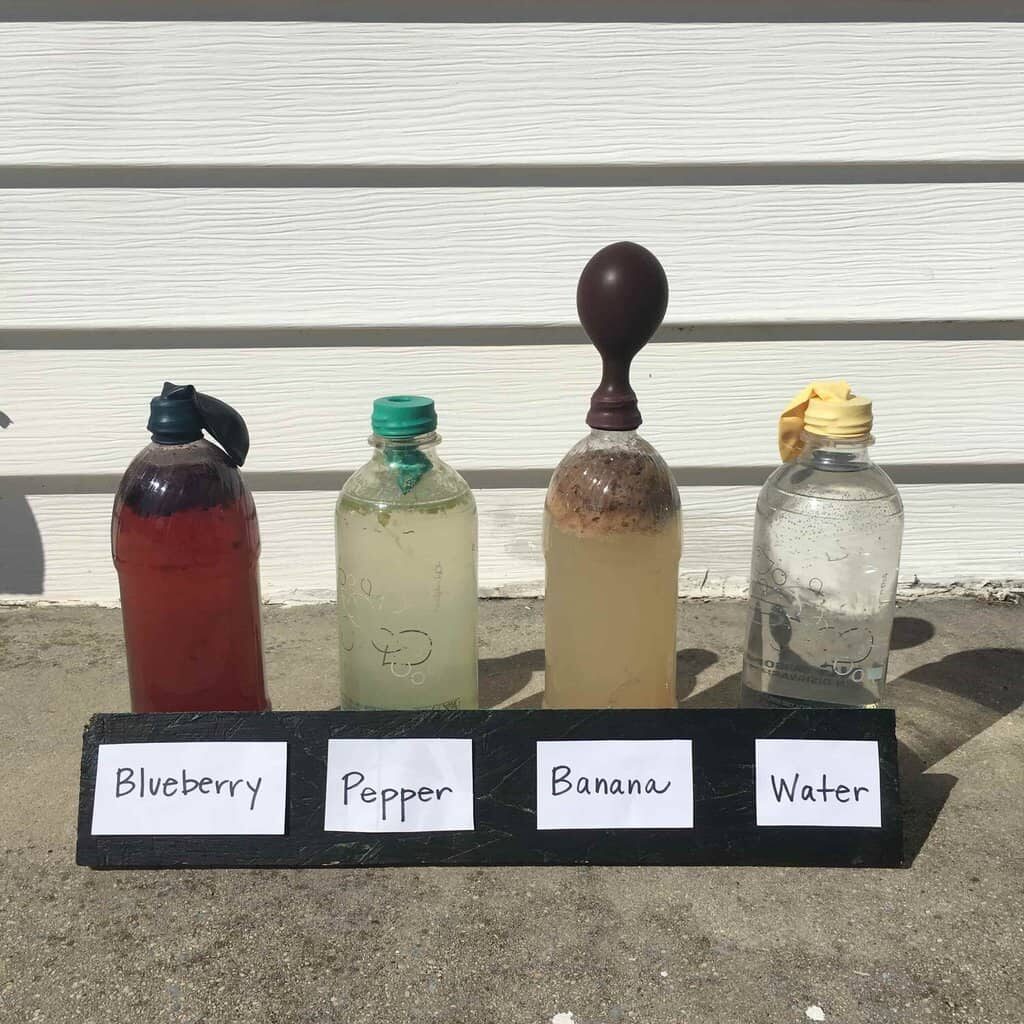
why these science experiments are important:
We learned last year that our young people might be the best hope for motivating our leaders to be change-makers.
We can teach kids about the importance of environmental issues through books about the environment, educational podcasts, school programs, and more.
But by letting them experiment with the science allows for a global issue to become local, making the lessons much more impactful.
By educating young people about the science behind why sustainability matters, hopefully, we can make them even more effective advocates for the planet (and stay sane while quarantined at home in the process).

GUEST POST: Jen Panaro is a self-proclaimed composting nerd and advocate for eco-friendly living for modern families. On her blog, Honestly Modern, she shares ideas about how families can incorporate low waste and sustainable habits into everyday living. She’s a serial library book borrower, a messy gardener, curator of the Bring Your Trash To Life series, and mom to two boys. Additionally, she may or may not spend an unusual amount of time admiring the hard-working worms in her compost bin; the jury is still out on the matter.
GUEST POST: Jess Purcell is a Chemistry teacher turned stay-at-home Mom who is passionate about explaining the science behind sustainable living. She is the creator of #sustainabilitysciencesunday, a weekly series on Instagram that provides simple sustainability science experiments that can be done at home. Jess lives in central Pennsylvania with her husband, two kids, and two cats and can usually be found outside, either digging in her gardens, hiking with her family or attempting to read a book while being cajoled into a game of hide and seek. You can find her on Instagram @thoughtfullysustainable.

